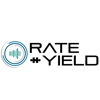
My first job in a hotel was as a sales manager for tour groups, sports teams and wedding blocks. In other words, I was our revenue manager’s least favourite colleague. I brought in the business that had some of the lowest rates, the most wash and the most guest complaints. We would often argue over potential groups, him saying “the displacement analysis shows that we can make more money if we decline the business”. I remember receiving emails from him at 3am with the results of his analysis, telling me what rate I had to secure to make it worthwhile.
Working in sales and revenue at a hotel, you are constantly searching for the holy grail of group business. In an ideal world, you are balancing your meeting room capacity with your guestrooms. You wouldn’t want to sell out all of your guest rooms and lose out on the potential revenue of booking meeting space with F&B. You also don’t want to book up all your meeting space without any guestrooms, because the best profit ratios are on guestrooms. A meeting room with no food & beverage service is not ideal either. Additionally, your group reservations should cover more days than just your peak weekdays to protect your shoulder dates. For example, selling out your hotel on Tuesday and Wednesday will make it near impossible to sell your Monday & Thursday nights.
In the case of the business I was bringing into the hotel, we preferred tour groups with rooming lists over sports or wedding blocks where individual guests needed to call and reserve. Not only was it more work for the hotel, there was the potential for guests to book outside of the block, causing the block to wash and leaving the hotel further behind plan than expected. Also, tour groups tended to offer repeat business whereas weddings are typically one and done.
All of these aspects need to be considered when evaluating a proposed group. In many cases, revenue managers will calculate their forecasted revenue for the dates in question with or without the group to see if it is worth taking at the proposed rate. This process involves verification of historical data, analysis of current booking trends and calculation of unconstrained ratios.
Rate Yield’s RMS includes an event evaluator function which helps to simplify this enormous task by analyzing the incremental profits with and without each group. The qualitative aspects, like customer loyalty, employee unions, and guest experience, remain at the discretion of the sales team.
If your hotel is spending hours analyzing the impact of group business and struggling to balance market segments, Rate Yield can help synthesize the information and facilitate decision making.

Rikki Cavanagh is the Director of Sales, Marketing & Business Development at Rate Yield. Connect with Rikki on LinkedIn.
About Rate Yield

Rate Yield was created in 2019 by seasoned Revenue Management consultants with over 30 years of experience within the field. Rate Yield RMS was designed to adapt to small hotels, inns, resorts as well as large hotels in city centers. With settings and thresholds that can be modified against a hotel’s unique market trends, Rate Yield makes it more accessible than ever to implement AI in revenue management strategies. With real-time insights, agile strategy development, modules for budgets and forecasts, as well as a tool for displacement analyses, Rate Yield provides a complete software that will help your hotel to yield more revenue, period! To learn more, visit us at www.rateyield.com.